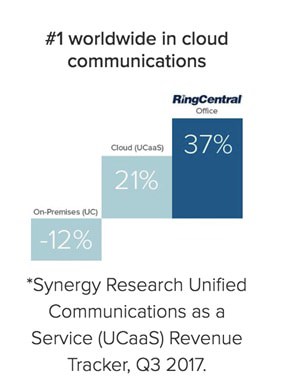Today, every company is a global company, requiring a new set of communication tools for employees, partners, and customers. Traditionally, service providers have been confined to their own in-country footprints, when it comes to serving multinational companies. The cloud, however, opens up new possibilities to expand into global markets.
Providing worldwide communications is not easy. Each country has its own regulations, local exchange carriers, and language requirements. All users require excellent quality of service for local and international calling. And every company has a different list of coverage countries. How can service providers scale their services globally to meet the growing demands of multinational companies?
The market opportunity

Multinational companies want more and are willing to pay for it. Modern communications products, such as video, collaboration, and contact centre, are particularly valuable to global enterprises that need to connect employees and customers across international locations. Global IT managers want the ability to instantly provision users and manage the quality of service without having to travel to foreign offices. Most importantly, they want all employees to communicate on a single platform. Carriers that can meet these needs can capture market share and higher revenues in the mid-market and enterprise segments.
What service providers need from a UCaaS solution
After considering hosting these services themselves, many service providers are choosing strong partners to help them expand into new markets. However, not all partnerships are created equal. Here are some key requirements that telco operators should be considering when looking for a UCaaS partner:
- All-in-one-cloud service: Carriers can choose a hybrid approach, combining hosted PBX solutions with wholesale international numbers, but it’s not an easy road. It leaves service providers responsible for doing the heavy lifting—engineering, testing, logistics, and implementation. In contrast, an all-in-one cloud service greatly simplifies delivery and provides modern communications software, reducing CapEx and increasing differentiation.
- Fast quote-to-cash: A common problem with global UC services is very slow implementation. The time from requesting a number to receiving service can take months. Carriers should look for providers with fast activation, device shipping, professional services, and self-serve ordering tools.
- Phone number footprint: Many cloud providers offer some international services, however, they are often limited in terms of countries, area codes, toll-free numbers, emergency services, and porting. Carriers need widespread coverage to meet the needs of enterprises.
- Data centre footprint: Local data centres and media transport are essential in reducing latency and jitter.
What business customers need from a cloud UC solution
According to Gartner, in three years, 90% of UC implementations will be cloud-based, up from 50% today. It’s clear: UC and businesses are moving to the cloud. Today, when companies think about cloud UC, they look for a complete, feature-rich, subscription-based solution that includes a seamless voice from a desk, laptop, or mobile, and includes integrated messaging and video. They also want portals, analytics, dashboards, and the ability to scale up and down quickly to meet changing business requirements. Top requirements of global enterprises include:
- A single communications and collaboration platform: A major obstacle for companies is shadowing IT. Often, satellite offices will choose their own collaboration tools, creating app overload and reinforcing silos. Equipping companies with a unified app that does everything—mobility, calling, video, and meetings—greatly reduces barriers to global collaboration.
- Self-serve tools: Today’s IT leaders need fast, flexible solutions. As global phone numbers have additional complexity, many cloud providers only have manual processes that require sales support. IT managers want self-serve tools for fast number-ordering and easy management. They also need self-serve quality-of-service (QoS) tools to manage their networks worldwide.
- Localisation services: End users want services in their own languages, from app interfaces to voicemail and IVR prompts.
How a RingCentral strategic partnership can help
The RingCentral Carrier Program provides the opportunity for service providers to partner with the cloud unified communications leader and instantly gain access to global solutions.
RingCentral understands the needs of today’s multinational enterprises. We help carriers deliver a market-leading solution built on a global UCaaS infrastructure that can integrate with their billing systems. Carriers can leverage the RingCentral cloud solution to:
- Provide full global UCaaS and contact centre services in 42 countries, and inbound virtual numbers in 119 countries and 13 languages
- Offer self-serve ordering and number management
- Overcome regulatory issues worldwide in North America, EMEA, LATAM, and APAC, including India and China
- Meet standards, such as providing emergency services, fraud mitigation, and GDPR in EU
The RingCentral network integrates with 200+ ISPs for customer access and 45+ carriers for PSTN and has 17 global data centres.
Learn more about how a RingCentral partnership can help carriers better address the needs of today’s multinational needs.
Originally published Jan 29, 2019, updated Apr 10, 2023
